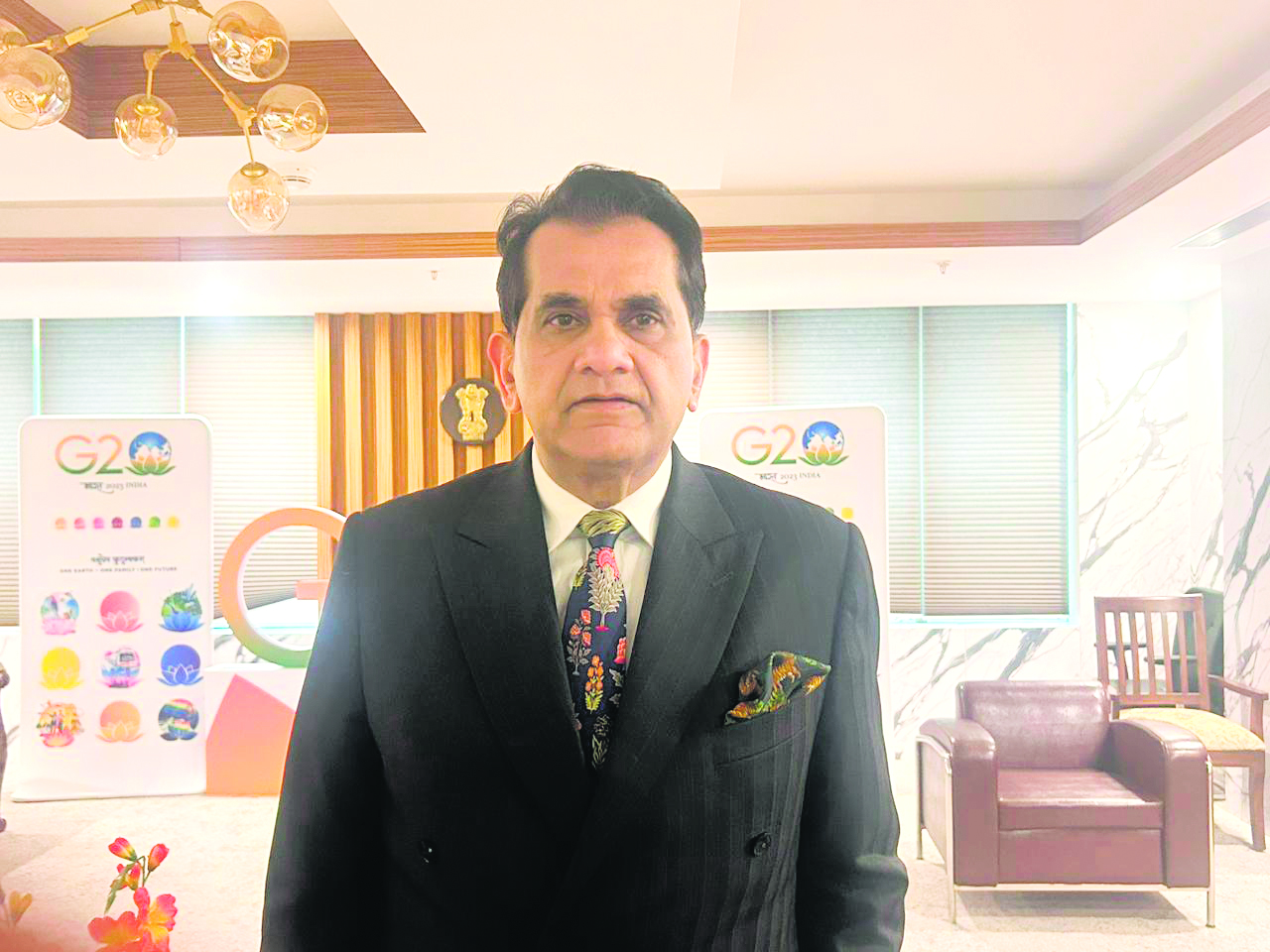Former CEO of NITI Aayog and G20 Sherpa Amitabh Kant shared his views with The Sunday Guardian on the interim budget. He says the budget reflects the government’s confidence in a strong comeback and commitment to fiscal discipline. The fiscal deficit, a crucial economic indicator, is projected to be at 5.1 per cent, with a clear roadmap towards reducing it to 4.5 per cent in the subsequent year.
Q: Is it the right budget at the right time?
A: I would say it was a very disciplined budget. It was the budget of a confident government which is getting into an election, and it was a budget that was fiscally very prudent.
Q: People expected that the tax slab and MSMEs would get respite, but that is all being put on hold.
A: Look, this is an interim budget. You have to appreciate the government for its discipline. For the fact that it has brought down the fiscal deficit from 5.8 per cent to 5.1 per cent and laid a roadmap to further bring it down to 4.5 per cent. That really shows that the government believes in the macroeconomic fundamentals of the economy. It was looking at the long-term growth of 2047. It is not looking at piecemeal benefits for individual citizens. It is not looking at sections of society; it is looking at driving sustained green growth over a long period, which is critical for India. And that is why giving these goodies to different sectors of the economy is not good for the economy. And I would like to place on record my great appreciation for being fiscally responsible and for being very, very disciplined.
Q: A lot of emphasis is being given to infrastructure and capital expenditures; how important is this development?
A: You have to look at it from 2013-14; the budget was very prudent. The government’s share of the budget for CAPEX has gone up from 1.2 per cent to about 3.4 per cent now. That’s close to about a 600% increase, actually, and that demonstrates that when the private sector was not stepping in, the government stepped up its allocation for CAPEX, which has enabled it to build roads, expressways, houses, flyovers, and drive growth. It has taken it from 3.3 per cent to 3.4 per cent by another 11 lakh crores, which was a very high base level. But my view is that if you do too much government expenditure on this, you also need to crowd in private sector investment into it. So you need to structure many more private-public partnership projects that are de-risked, where due diligence is done and all the approvals are in place, and we can create top-class infrastructure because the private sector brings in good design and good operation maintenance over a long period of time. So I’m a believer that this budget sends the right signals by taking the CAPEX expenditure to 3.4 per cent, but it also sends a signal that the private sector must also get into infrastructure creation.
Q: How will the budget provide benefits to the youth?
A: There are certain path-breaking features of this interim budget. One is the Rs 1 lakh crore allocation for research and development (R&D), which is almost like providing free money. Because you’re giving interest-free money over 50 years. The second is providing Rs 75,000 crores to states based on milestones for reforms. Because now reforms have to be pushed back by the state governments, and if you can drive the eastern part of India, which is mineral-rich, through these reforms and incentives, it’ll be a very big breakthrough. The third is that this budget is very, very green-tech-oriented. It pushes for sustainable growth through the blue economy, green technologies, EVs, and solar rooftops, as these are very, very notable features of this budget.
Q: Is there something in this budget for everyone?
A: First, the government
Q: Do you think the next few years will be India’s decade?
A: Yes, we’ve done pathbreaking reforms in geospatial areas, in drones, and in space. A lot of deep tech has to be driven, which was talked about in today’s budget. I think a lot of work will need to be done through R&D and innovation, for which an incentive has been provided. And hopefully, we’ll see India taking the lead in many sunrise areas of growth.
Q: We took upon the G20 presidency when it was difficult for the world in terms of economic growth; what does it indicate?
A: Yes, there were several complexities. There was slow growth, global debt, the Russia-Ukraine crisis, and challenges in climate and energy. India is the only country that was able to bring everyone together under the leadership of the Prime Minister and bring consensus on 83 different paras and about 217 different outcomes.
In every single line, we brought consensus to the table. And that was India’s ability to straddle the world of the G7, of developing countries like Russia, China, and everyone else. No other country could have done it.

